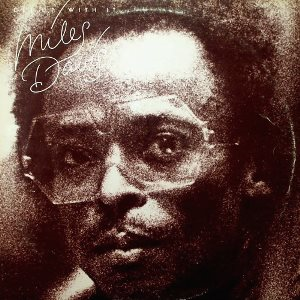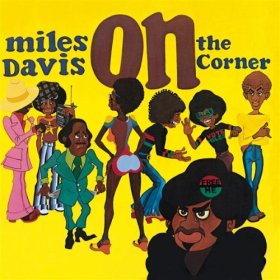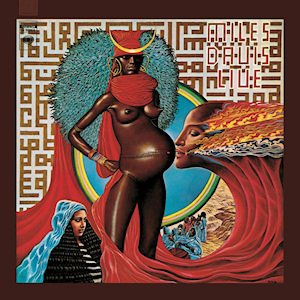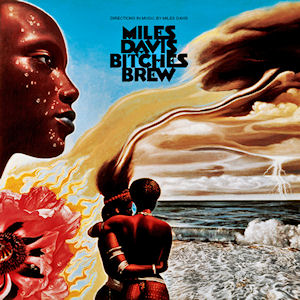Transmissions of the metaphysics of a culture
Steve Coleman and Rhythm Mystic Society

“During the latter part of 1995, I began to investigate an idea that I'd been thinking about for at least 7 years. I wanted to form a creative collaboration using one of my groups (Steve Coleman and the Mystic Rhythm Society) and musicians, singers and dancers who were involved in certain ancient philosophical/musical traditions which come out of West Africa. One of my main interests was the Yorùbá tradition (predominantly out of southwestern Nigeria) which contained the ancient African religion underlying Santeria (Cuba and Puerto Rico), Candomble (Bahia, Brazil) and Vodun (Haiti). I decided to go to these places and investigate the way the ideas of these traditions were transmitted through music. First stop, Cuba! This trip would make a profound impact on my philosophy and music.
This project is part of the realization of a vision that I've had for some time now. It represents a step in the evolution of the music I'm involved with, exploring ways of communicating information through sound. It also shows that there is a more obvious connection than is generally thought between the creative music of today and the dynamic musical traditions of African peoples living in various parts of the world. This recording is about roots, about a common conception regarding how music is created. It is the African idea of expressing the universe through sound that forms the common bond here. That idea involves the process of expressing forces of nature in their rhythmic-tonal configurations, the underlying concept of the music of both AfroCuba de Matanzas and Steve Coleman and The MysticRhythm Society.
The universe is full of rhythm: continual pulsation; ebb and flow; death, birth and regeneration. The stars, planets, seasons, oceans and all of life move in cycles. This cyclic form is the manner in which the rhythmic-tonal formations progress and the relationship of these cycles gives this music it's identity.
There are many layers of musical cycles on this recording and there is multiple symbolism and meaning in each of the various levels. This symbolism cannot be adequately described using words however I've tried to supply some translations to some of the lyrics below. Where the lyrics are in Yorùbá, I've tried to follow the Nigerian translations (not the creolized Cuban pronunciations):
THE DIURNAL LORD (for AGAYÚ or AGANJÙ)
Agayú or Aganjù, which means wilderness or uninhabited plain or forest in Yorùbá, is symbolized by the volcano and the sun in Cuba. Agayú is said to be the child of Oro Iná (Fierceness of Fire). Oro Iná is the lake of molten magma boiling at the core of the world. It is her son Agayú who restrains and channels her explosive powers.
EPÒ SíOLÀ íKÍNIíBA O, EPÒ SíOLÀ íKÍNIíBAO,
Abundance that makes wealth, the one who is greeted as king,
Abundance that makes wealth, the one who is greeted as king,
ÀKÀRÁ O, SíOLÀ íKÍNIíBA O LÒWÚ YÈ, MO DÁ NKÍ O
Great noise who makes wealth, the one who is greeted as king,
You use celebration to mark your installation as chief, I act alone insaluting you.
THE SEAL (ELEKOTÓ, for AGAYÚ or AGANJÙ)
Another song to praise Agayú. The many layers of conversationsin this piece are idiomatic of the non-linear approach to life in ancientAfrican cultures and the way these cultures relate to the universe.
ELÉEKÒ E ELÉEKÒ E AGANJÙ ELÉEKÒPÈ íLÁYÉ
Owner of vigor, owner of vigor,
wilderness owner of vigor we cry out greetings to you chief.
PASSAGE OF THE RIVER (for OSHÚN or ÒSUN)
A daughter of Yemoja. In Yorùbá the name Oshúntranslates to mean "Spring" or "Source". As fresh water,she is the source of life for the world. Oshún is wisdom and wastaught the art of sixteen cowry divination by Obàtálá.
ÌYÁ MI ILÉ ODÒ, ÌYÁ MI ILÉODÒ
My motherís house is the River. My motherís house is the River
GBOGBO ÀSE
All powerful
OBÍ NI SÁLÀ MÁA WÒ E
Women that flee for safety habitually visit her
ÌYÁ MI ILÉ ODÒ
My motherís house is the River.
OYÁ NATUREZA
Oyá, another daughter of Yemoja, is symbolized by the tornadoand represented by forked-lightning. She is called Oloododo (the ownerof Truth/Sincerity) and is depicted holding a long sword in each hand.She is the love and wife of Sàngó. This song is dedicatedto Oyá and sung by Rosangela Silvestre from Bahia, Brazil.
Translation of Portuguese:
AH! MINHA GRAÇA, MINHA RAÇA
Ah! my grace, my race
MINHA PIRRAÇA, MINHA TRANÇA
My attitude, my braids
MINHA HERANÇA, MINHA DANÇA
My inheritance, my dance
MINHA GUIA, MEU DIA
My guide, my day
MINHA MAGIA, MEU ENCANTO
My magic, my incantations
MEU QUEBRANTO, E MEU SANTO
My strut, And my saint
OYÁ, DEUSA DO VENTO
Oyá, goddess of the wind
OYÁ, DEUSA DO RAIO E DO TROVÃO
Oyá goddess of thunder and lightning
OYÁ, A MOÇA DE VERMELHO QUE ENCANTA
Oyá the girl in red that enchants
OYÁ, A DEUSA DO AMOR DE XANGÔ
Oyá the goddess of the love of Sàngó
OYÁ, SETE FORCAS, SETE DONAS
Oyá seven forces, seven powerful women
OYÁ, ANIMAL DE PELE PINTADA
Oyá animal with the painted coat
OYÁ, O RÔNCO DA FORÇA DIVINA
Oyá the roar of divine force
OYÁ, MULHER E HOMEM DO DOMINIO DA RAÇA
Oyá woman and man that dominated the race
OYÁÖÖ (repeated backwards)”
Steve Coleman
„В края на 1995 г. започнах да изследвам една идея, която обмислях от поне седем години насам. Исках да създам творчески колектив с една от моите групи (Steve Coleman and the Rhythm Mystic Society) и музиканти, певци и танцьори, занимаващи се с определени древни философски/музикални традиции, произлизащи от западна Африка: Сантерия/Santeria (Куба и Пуерто Рико), Кандомбле/Candomble (Бахия, Бразилия) и Водун/Vodun (Хаити). Реших да посетя тези места и да разуча начина, по който идеите на тези традиции се предават посредством музика. Първа спирка – Куба! Това пътуване щеше да окаже силно влияние върху музиката и философията ми...
...
Космосът е изпълнен с ритъм: непрекъснати пулсации; приливи и отливи; смърт, раждане и регенерация(реинкарнация, бел.пр.). Звездите, планетите, сезоните, океаните и целокупния живот се движат циклично. Тази циклична форма е начинът, по който ритмично-тоналните структури се развиват и взимовръзката между тези цикли дава своеобразието на тази музика.
Музикалните цикли в тези записи са многослойни, изпълнени със сложен символизъм и значение на всяко едно ниво. Този символизъм не може да бъде адекватно описан с помощта на думи; въпреки това, аз съм се опитал да преведа някои от текстовете.”
Steve Coleman
А аз сега нямам възможност да превеждам текстовете на български ;)
source: www.m-base.com ;)

.jpg)














